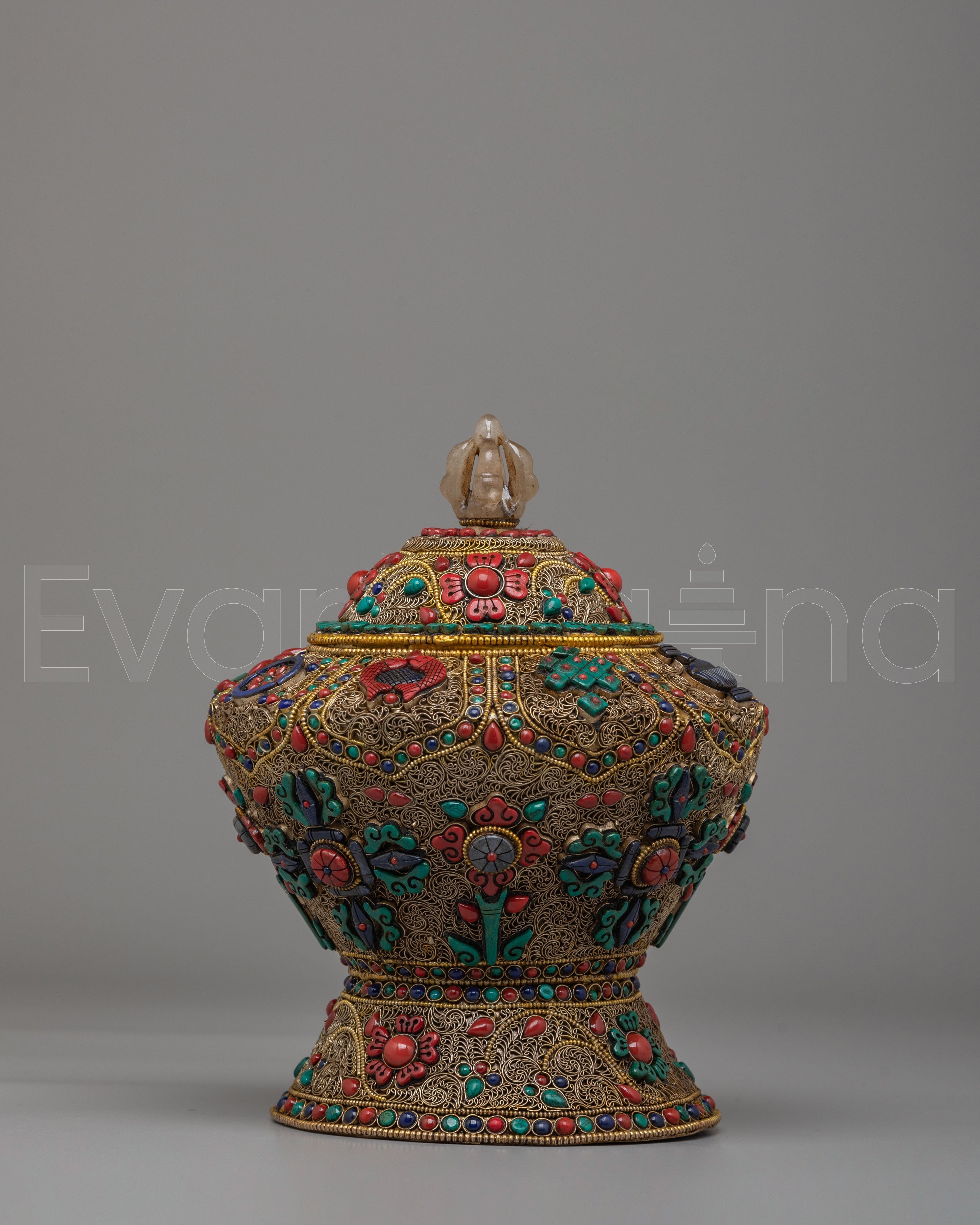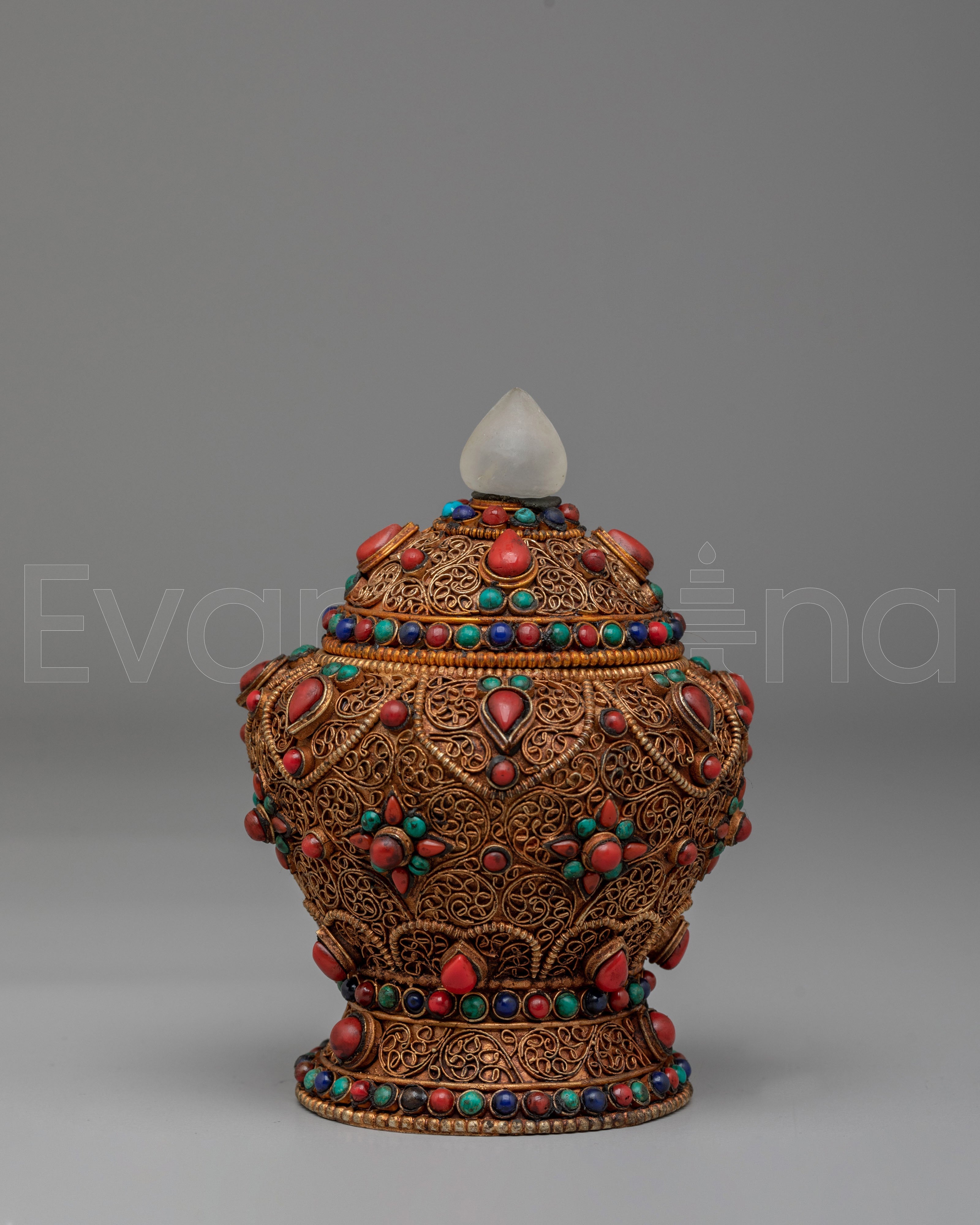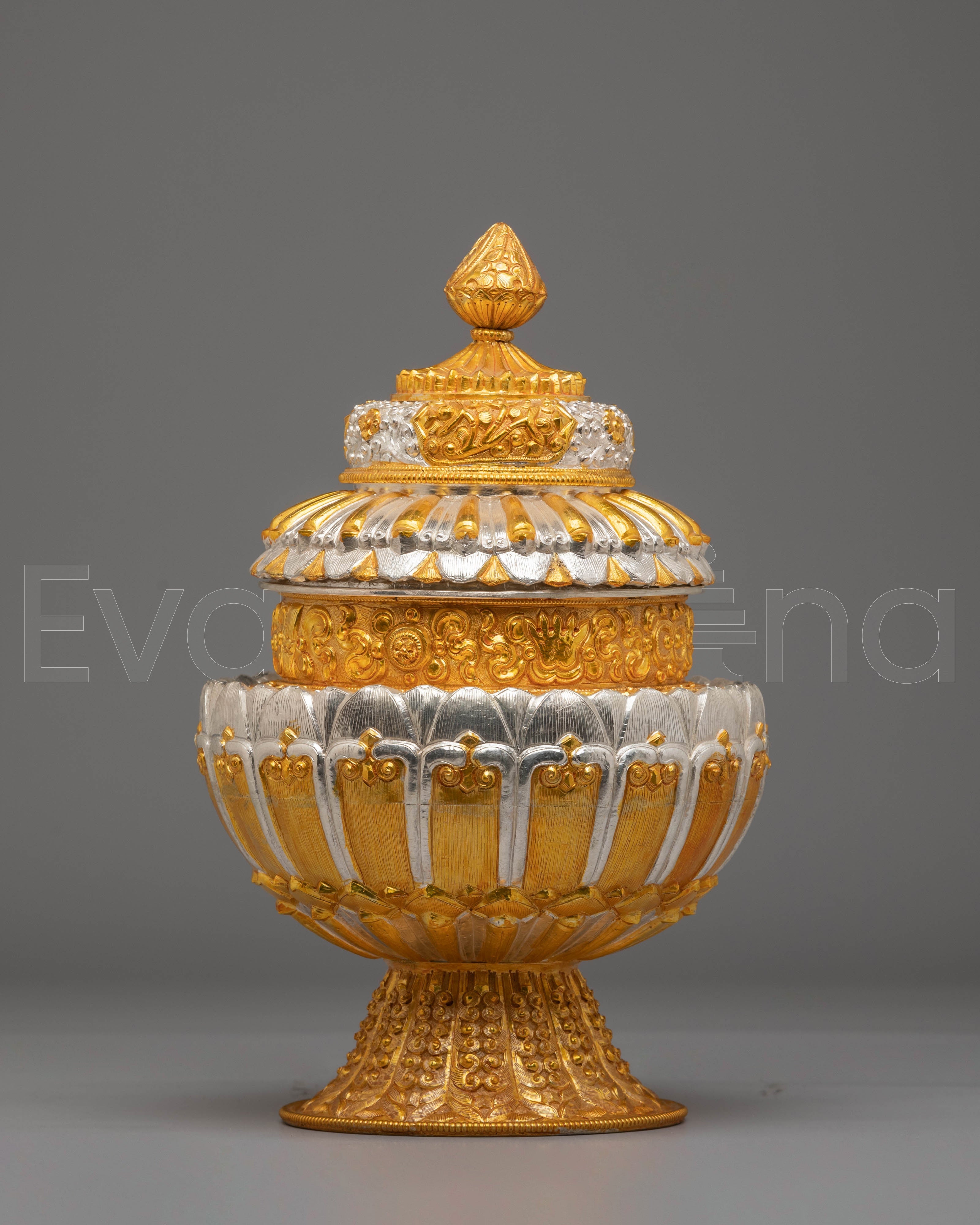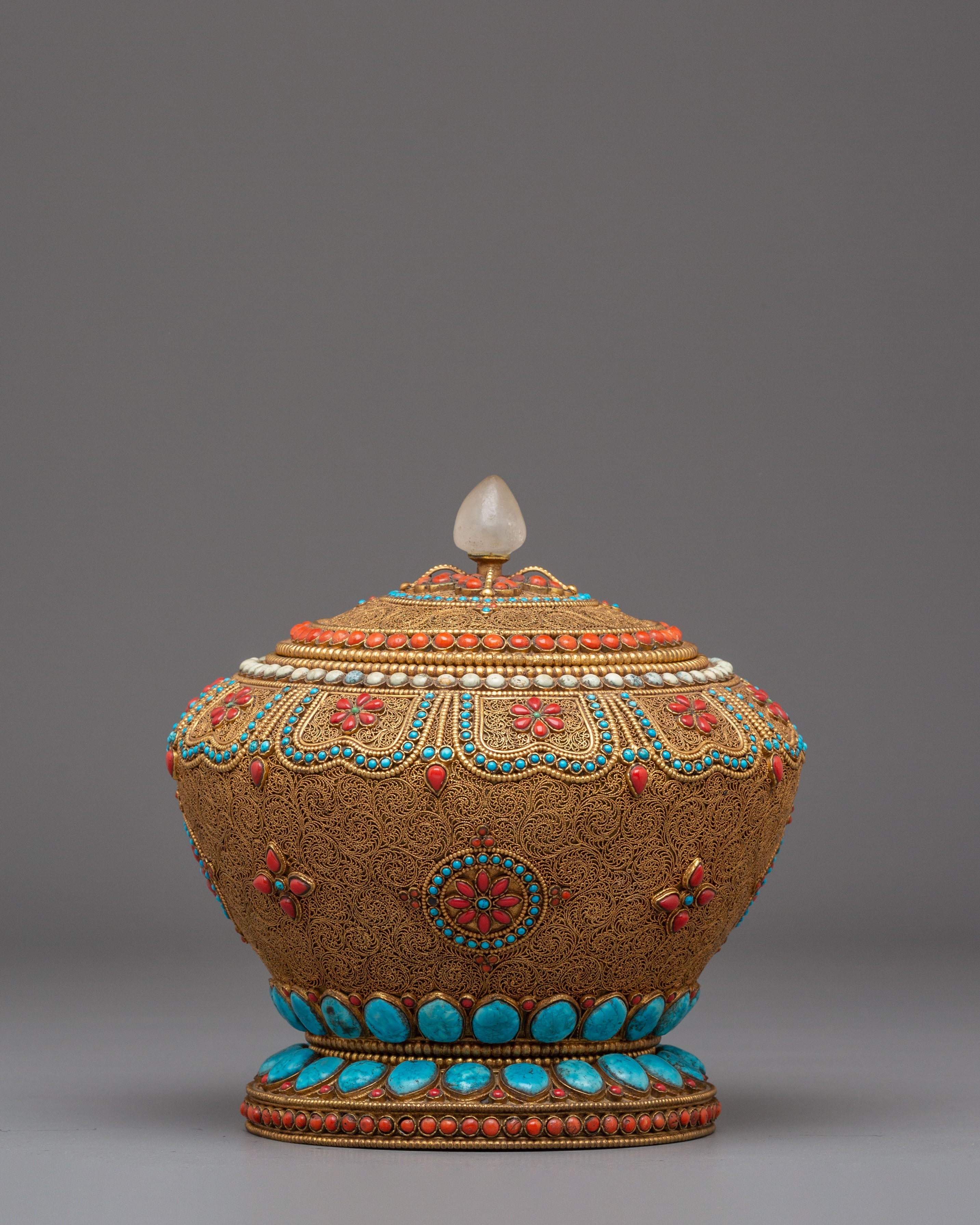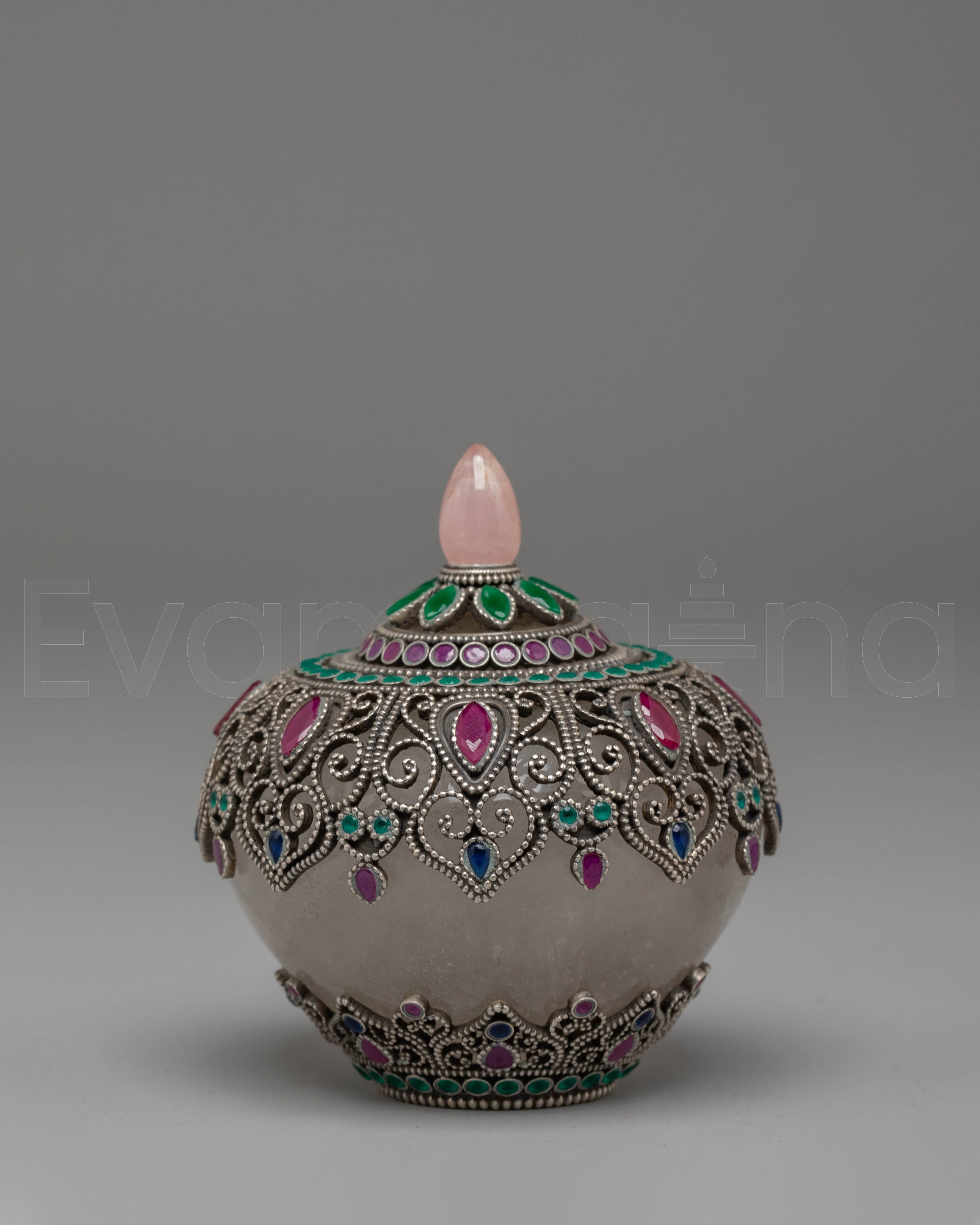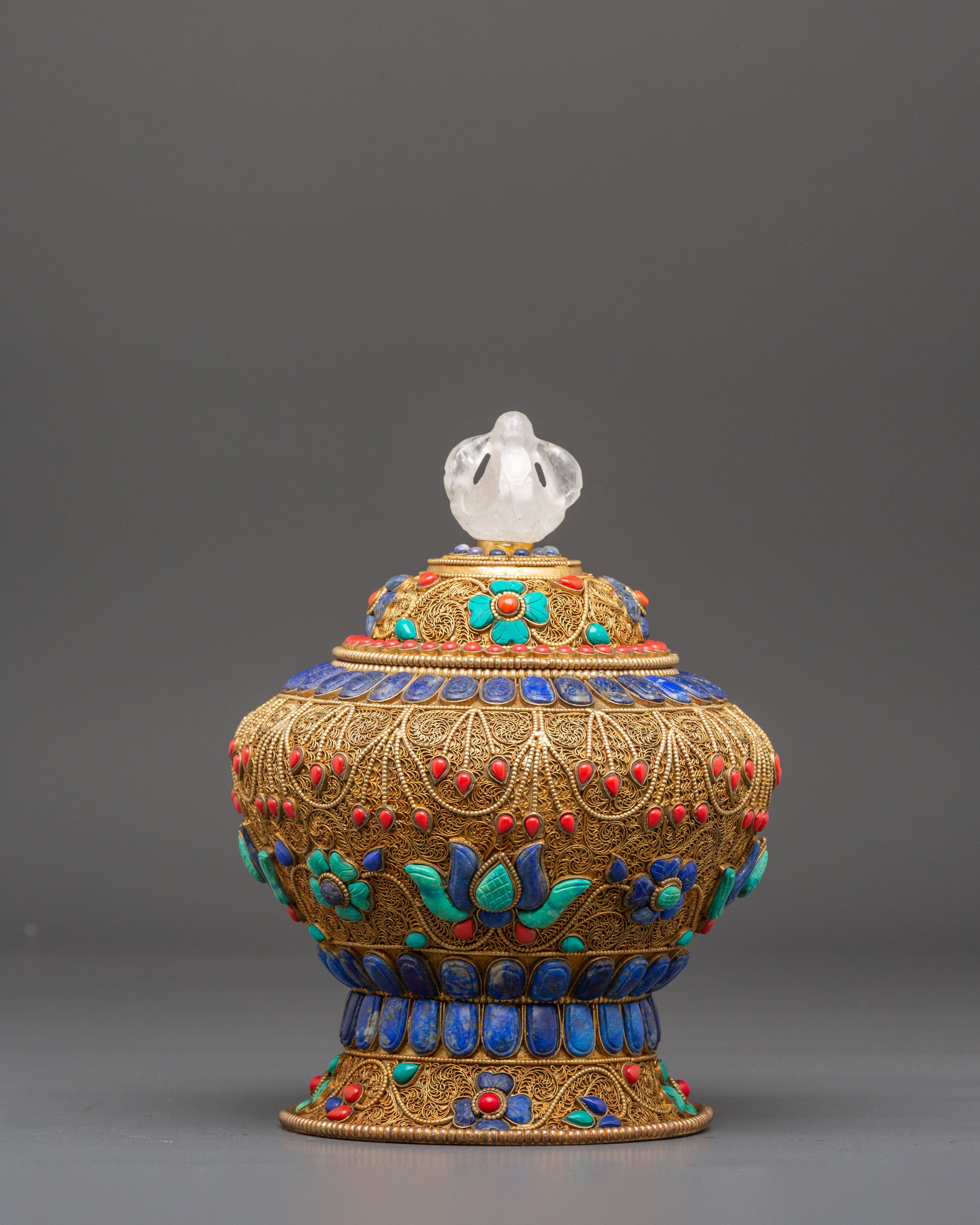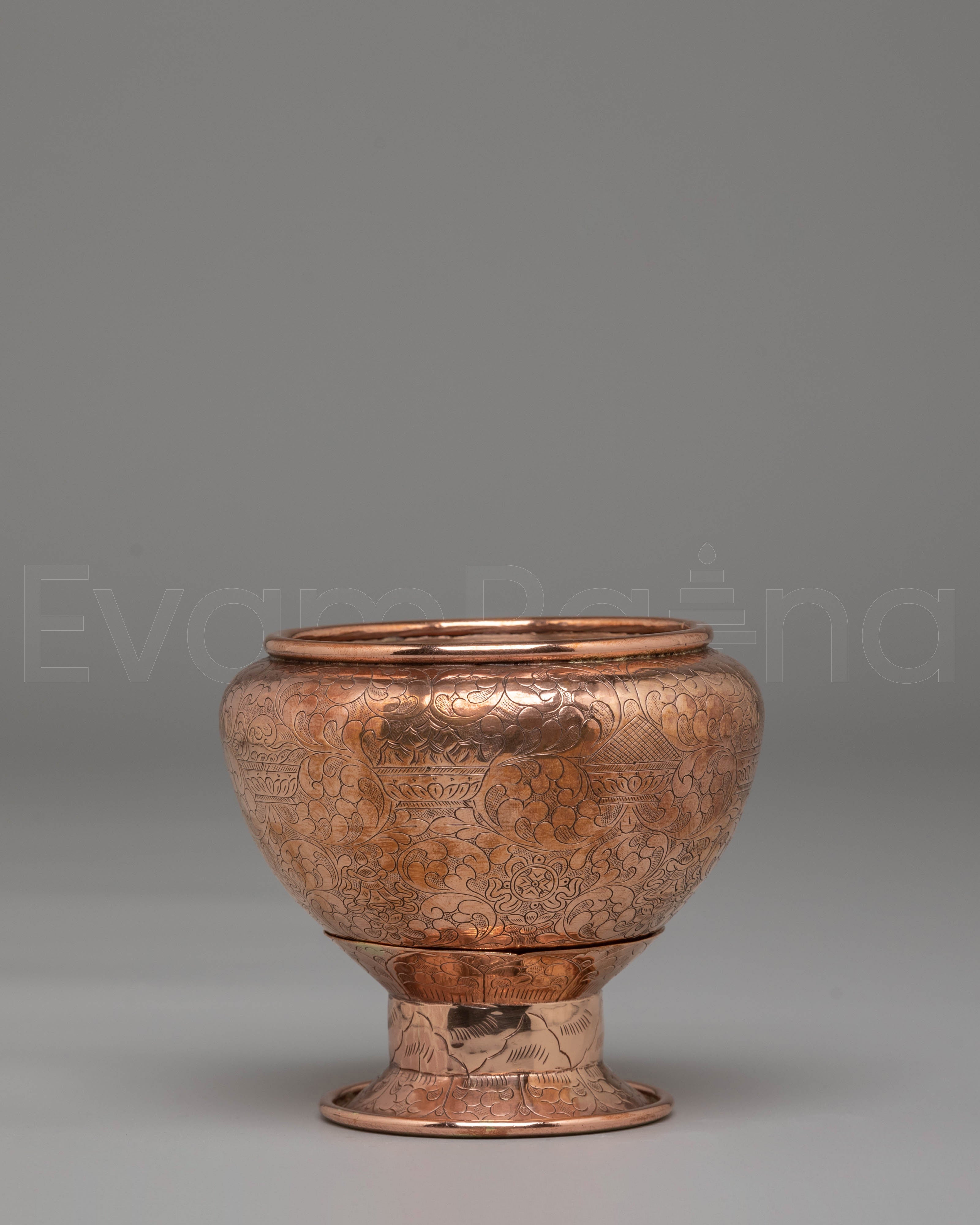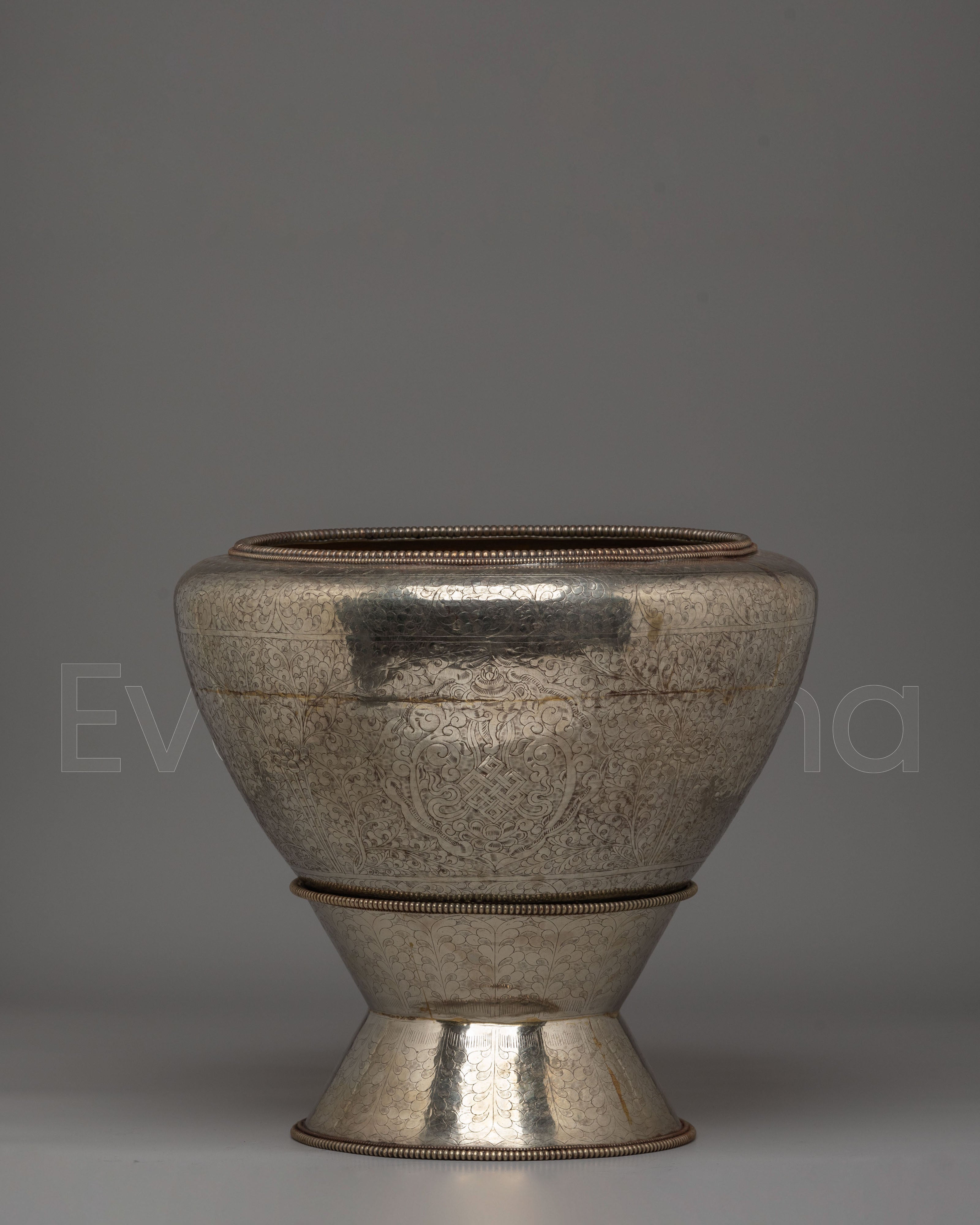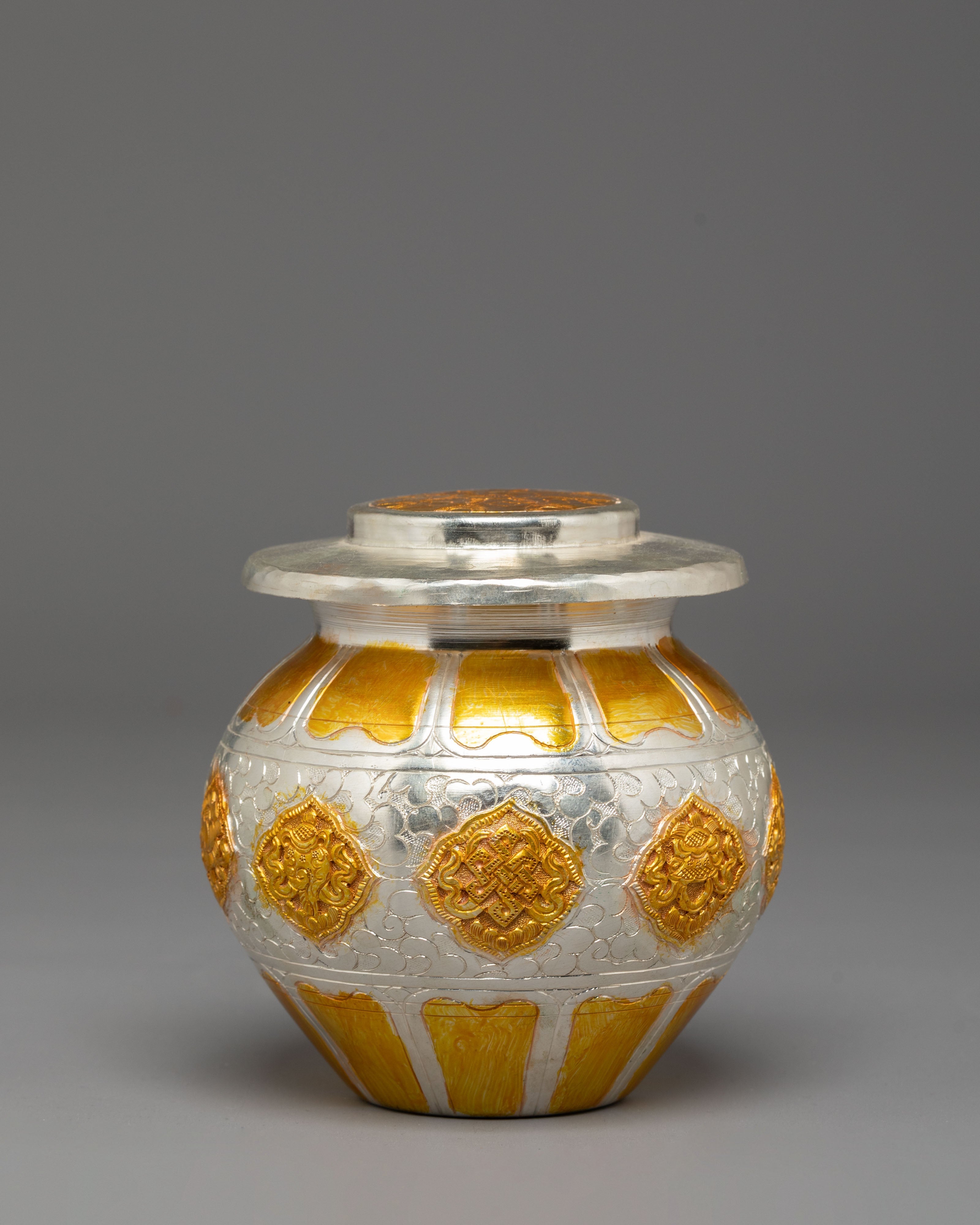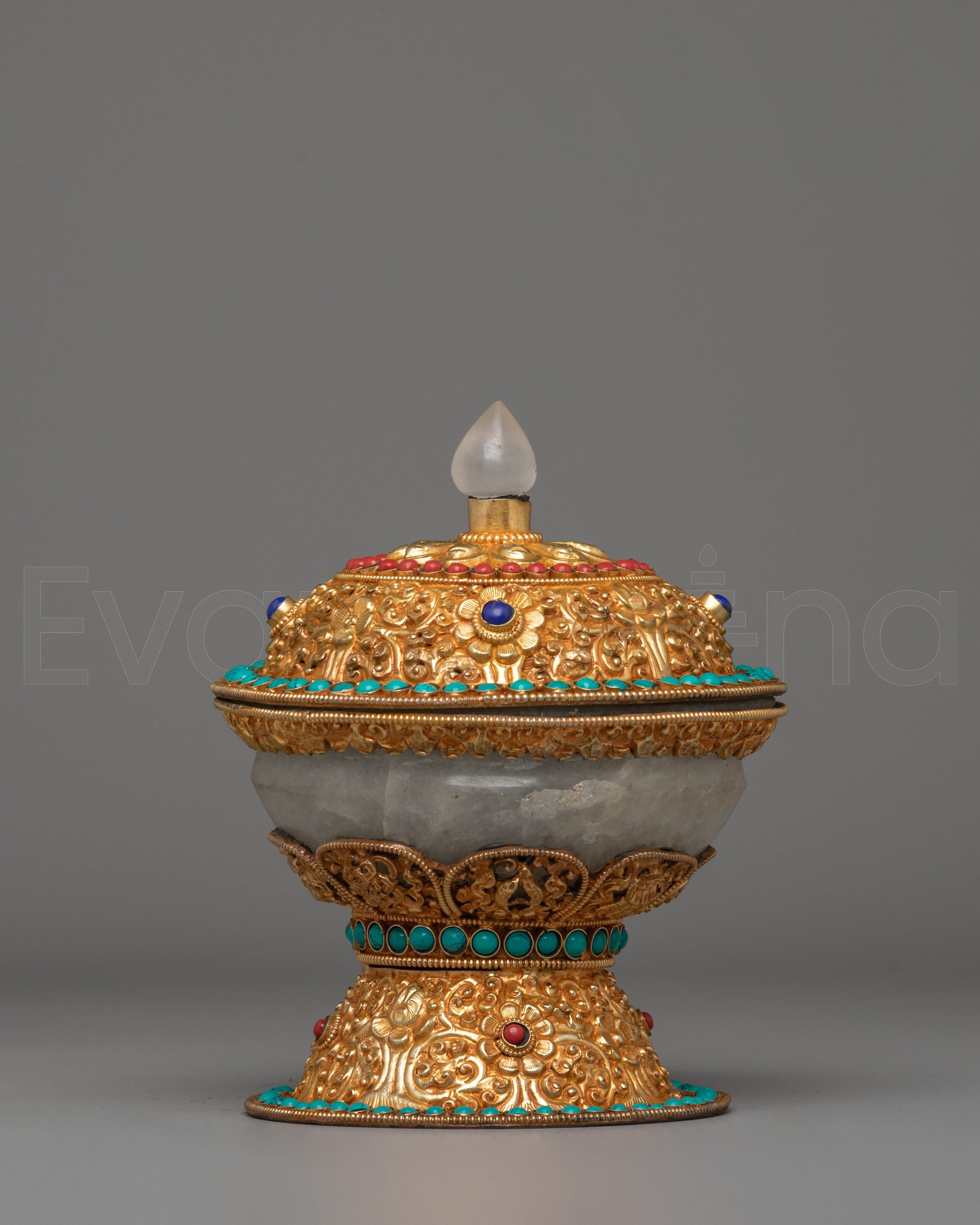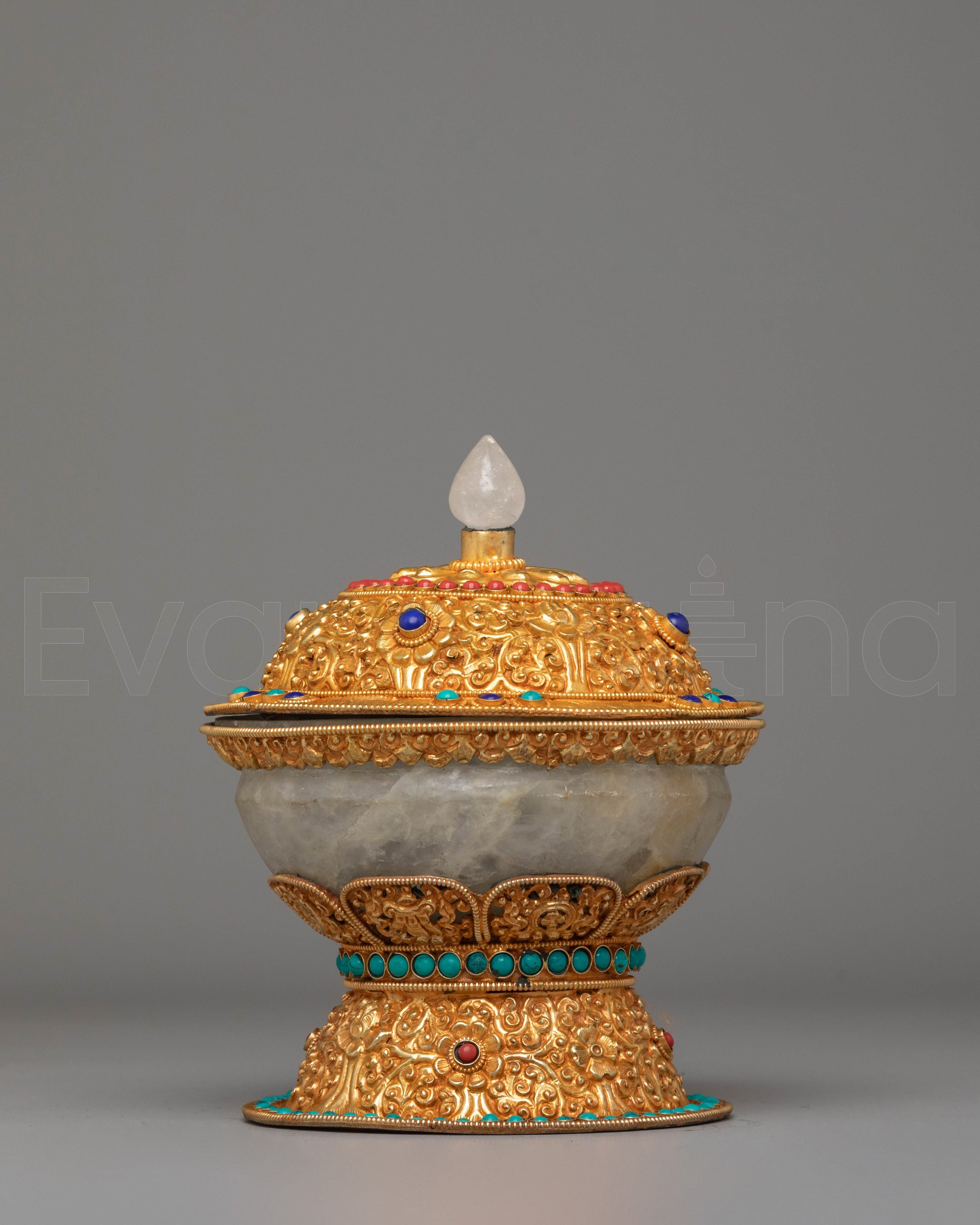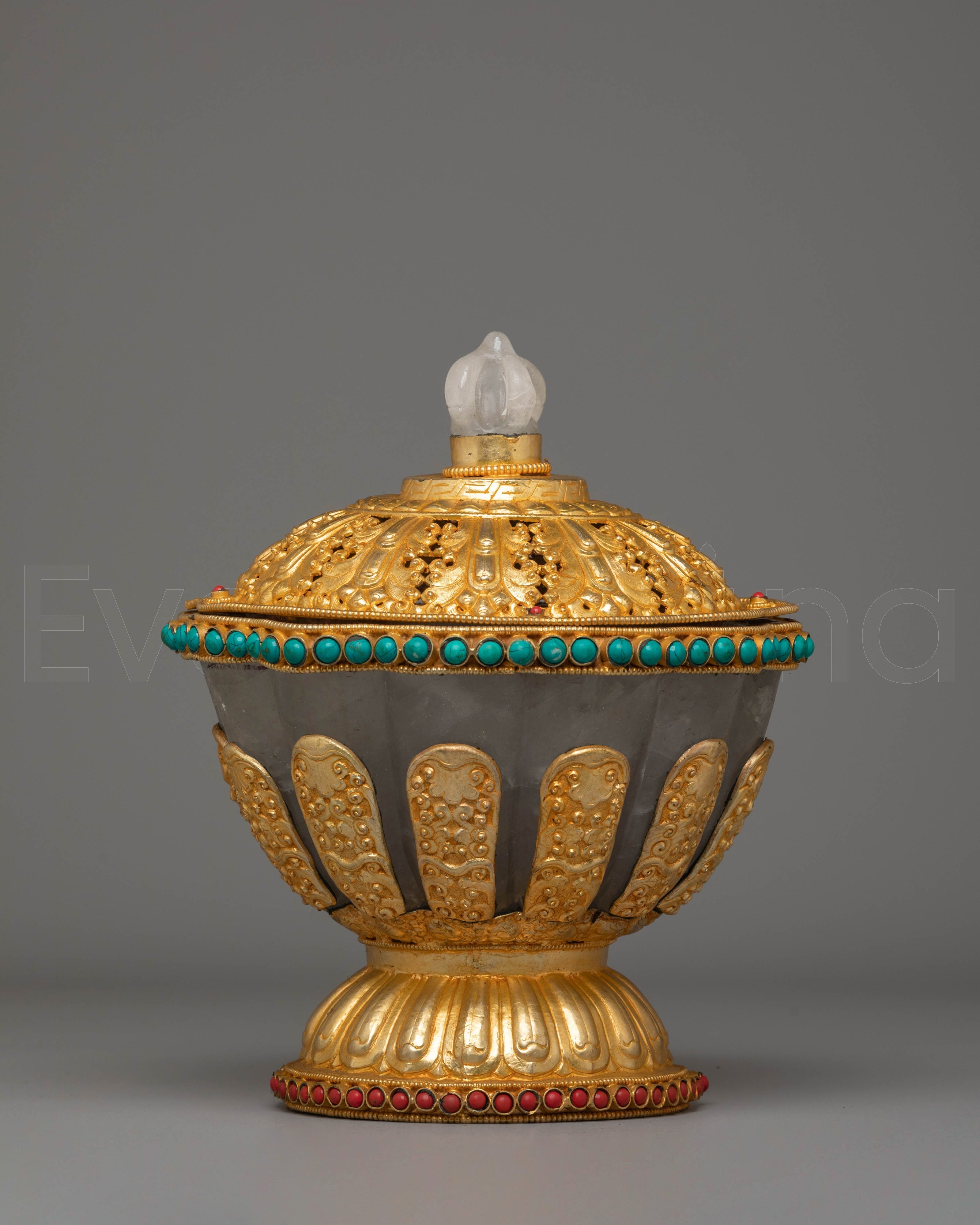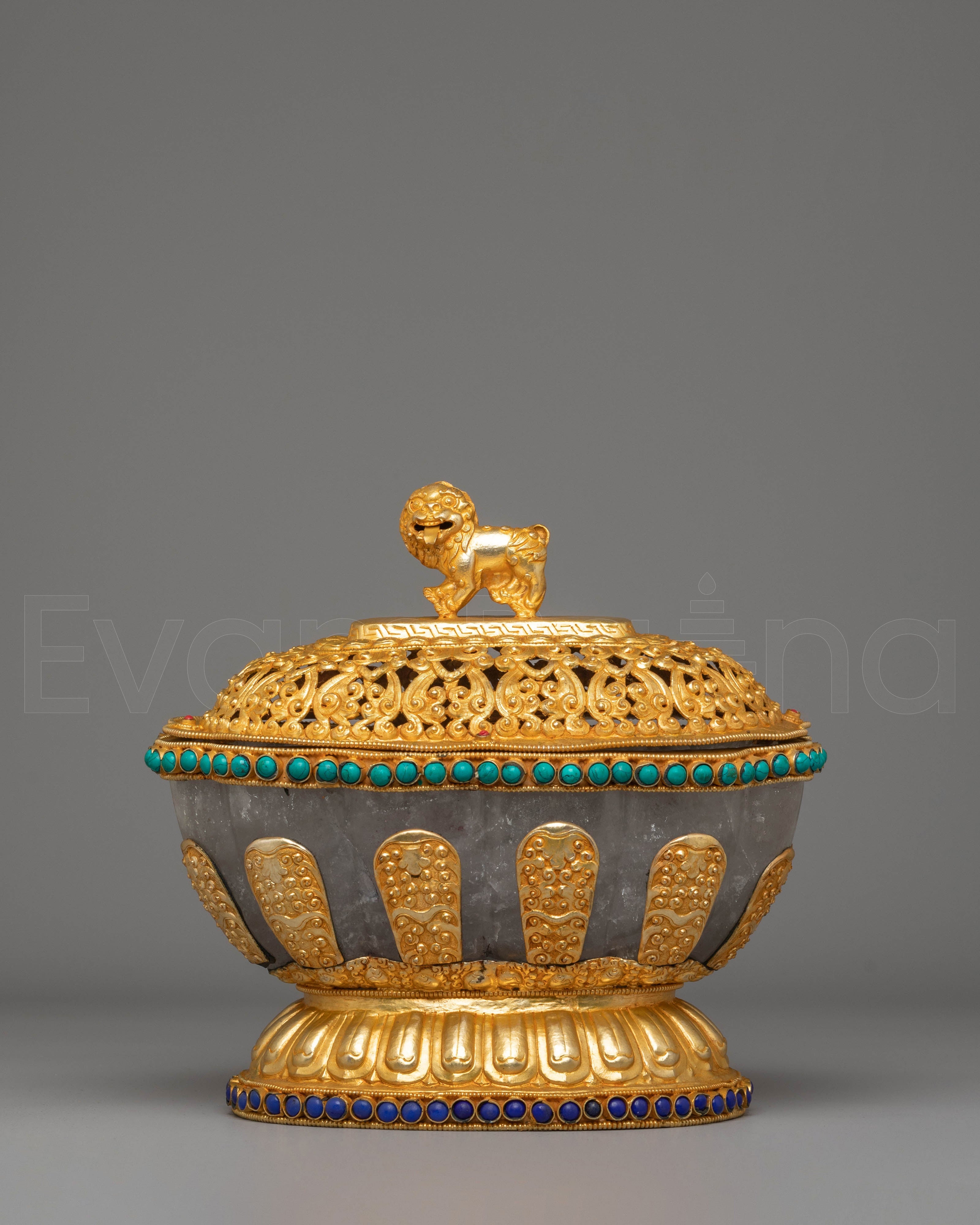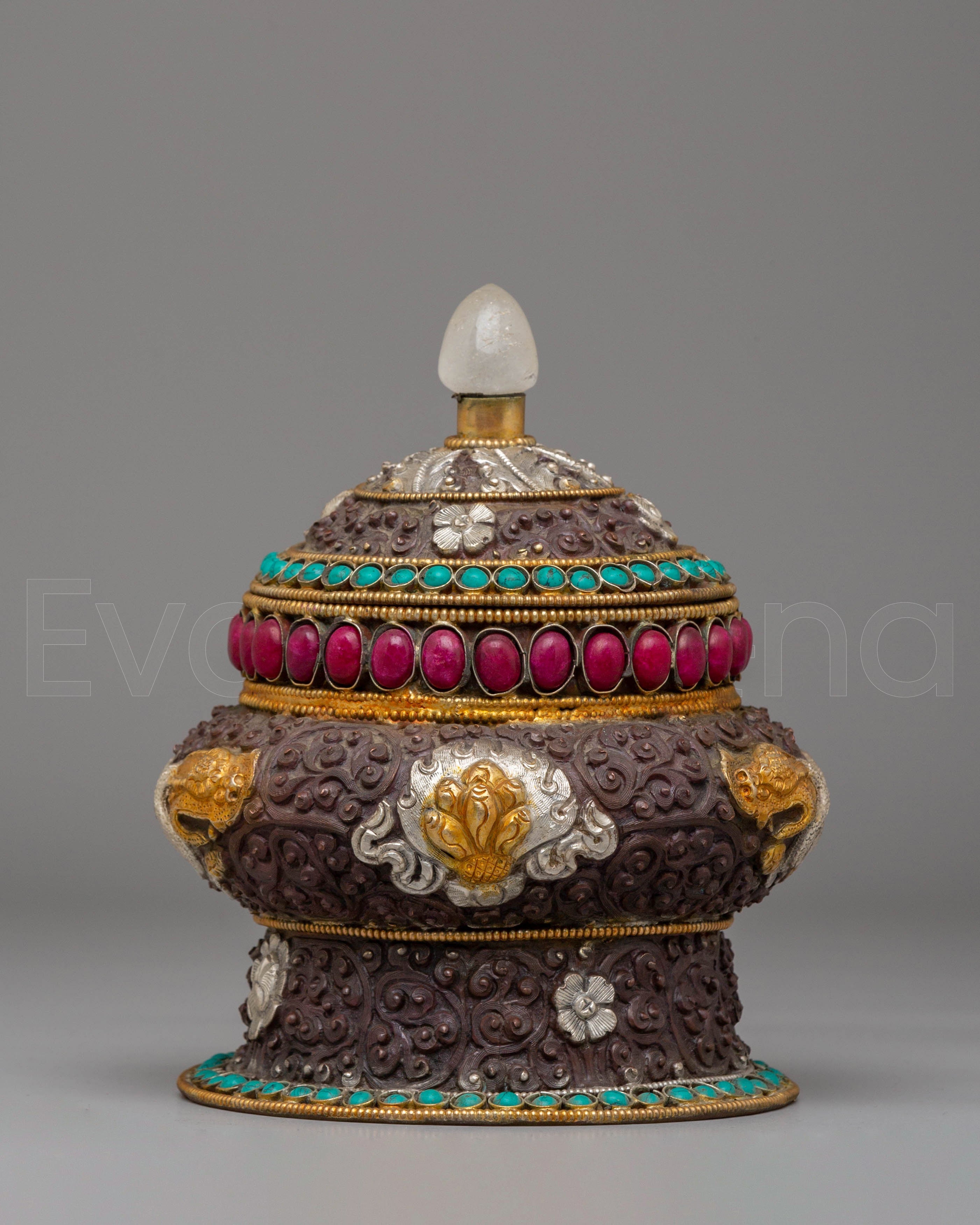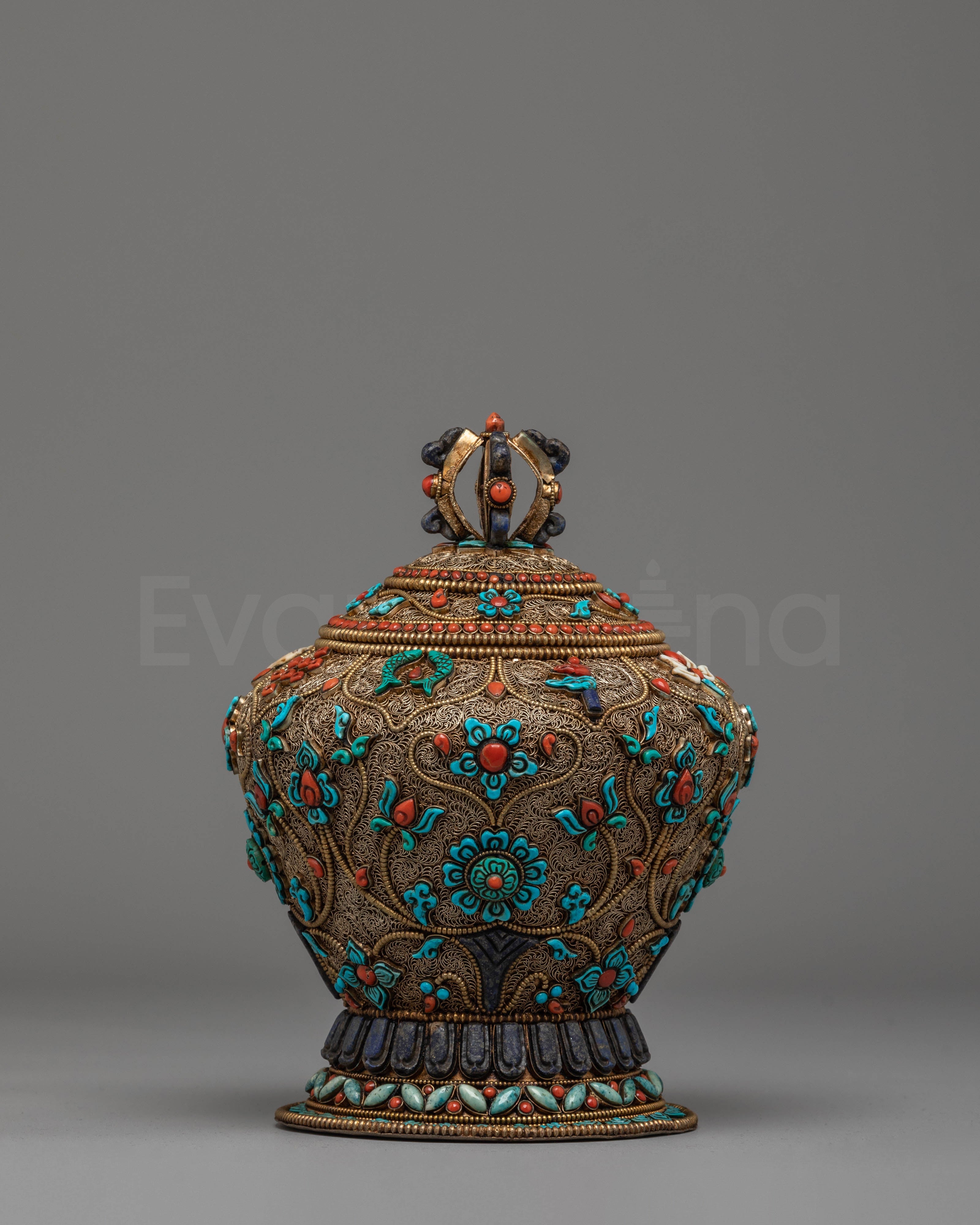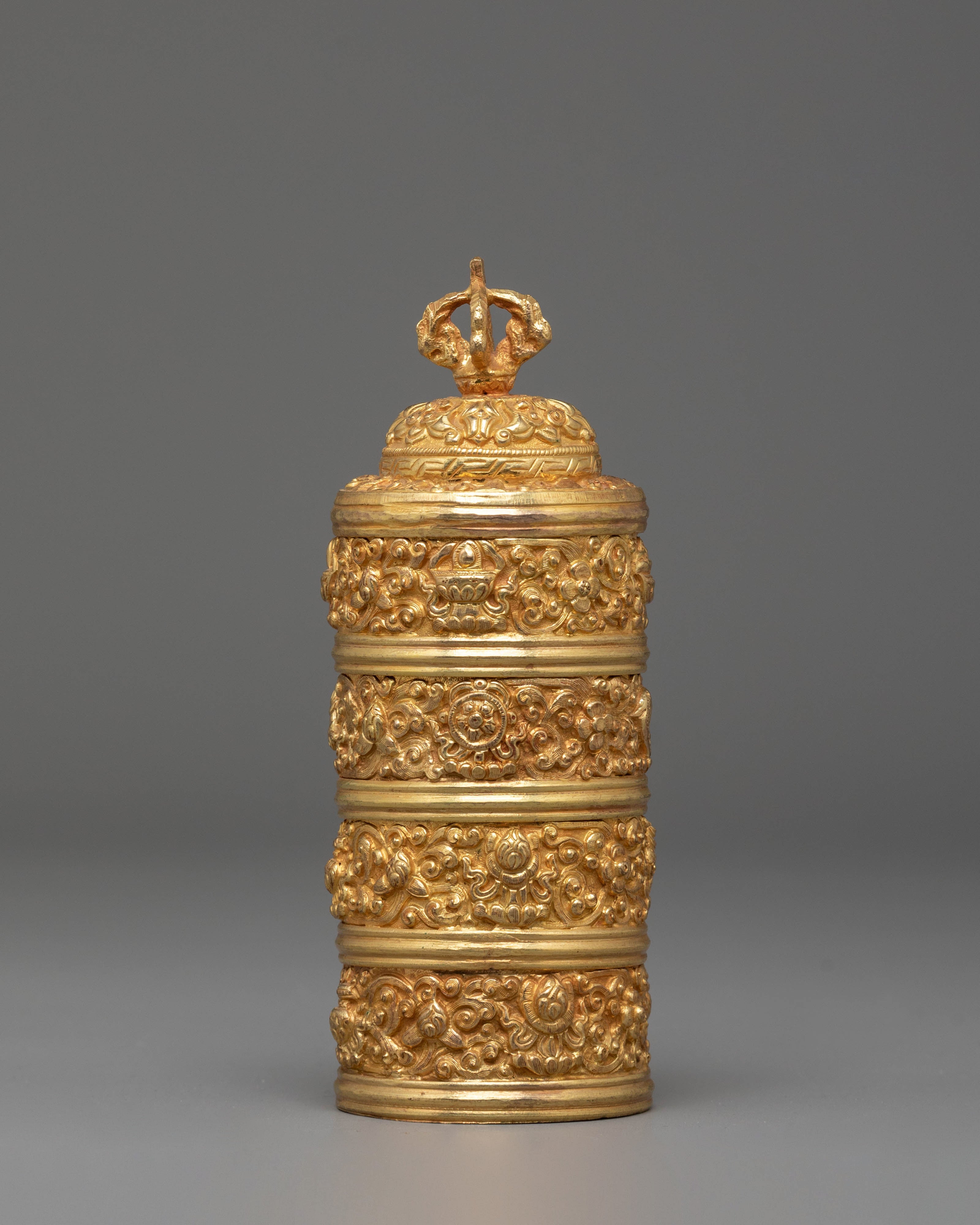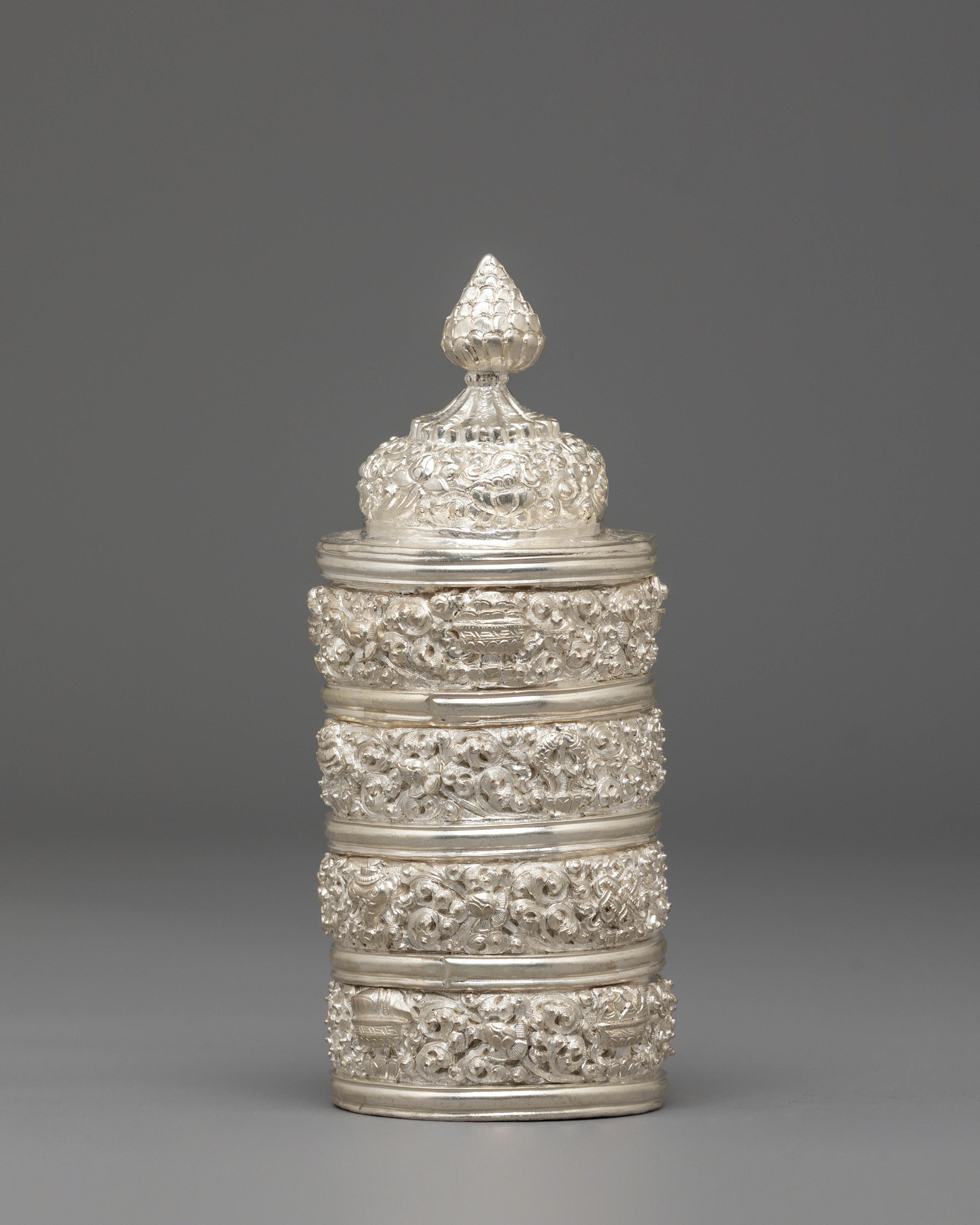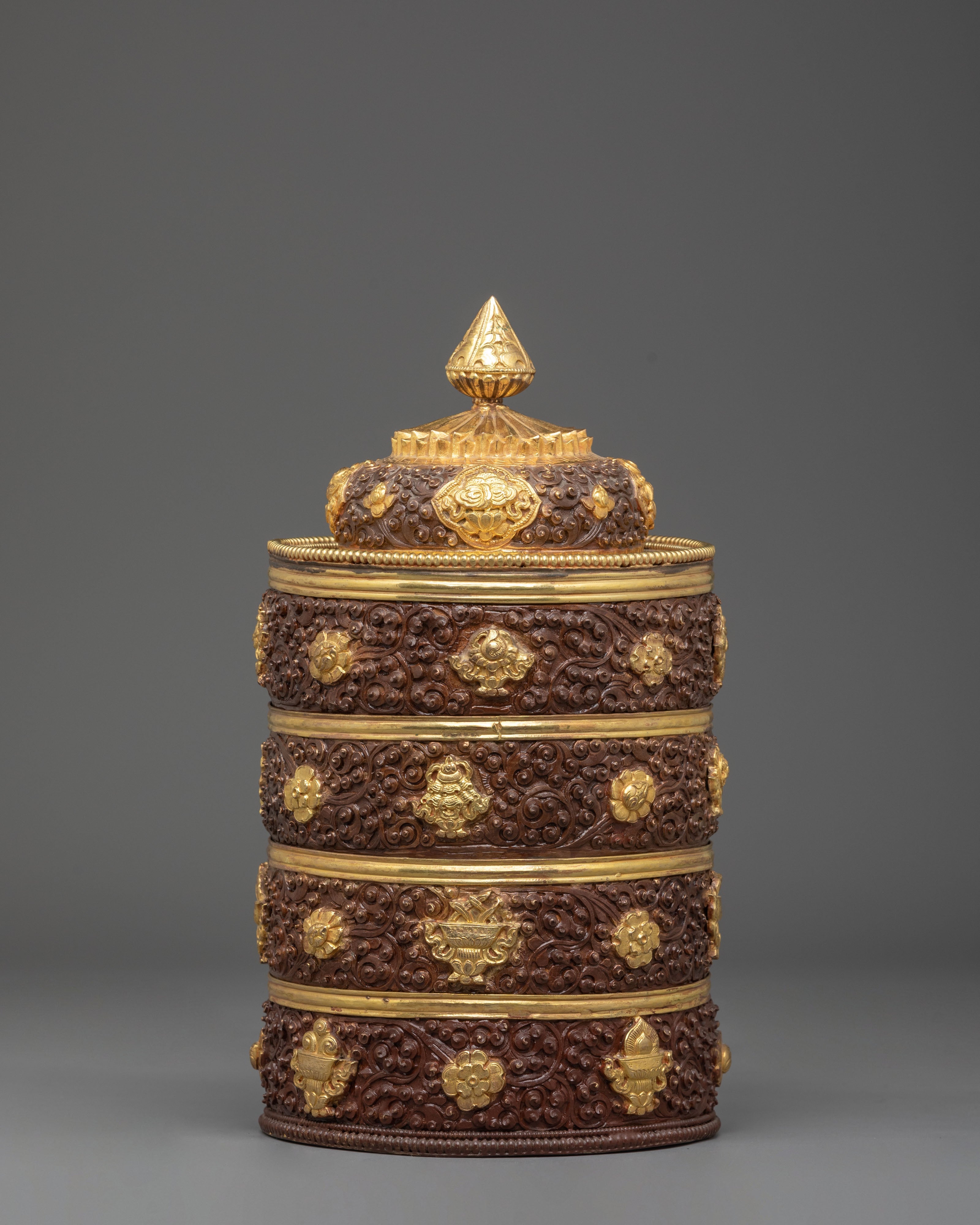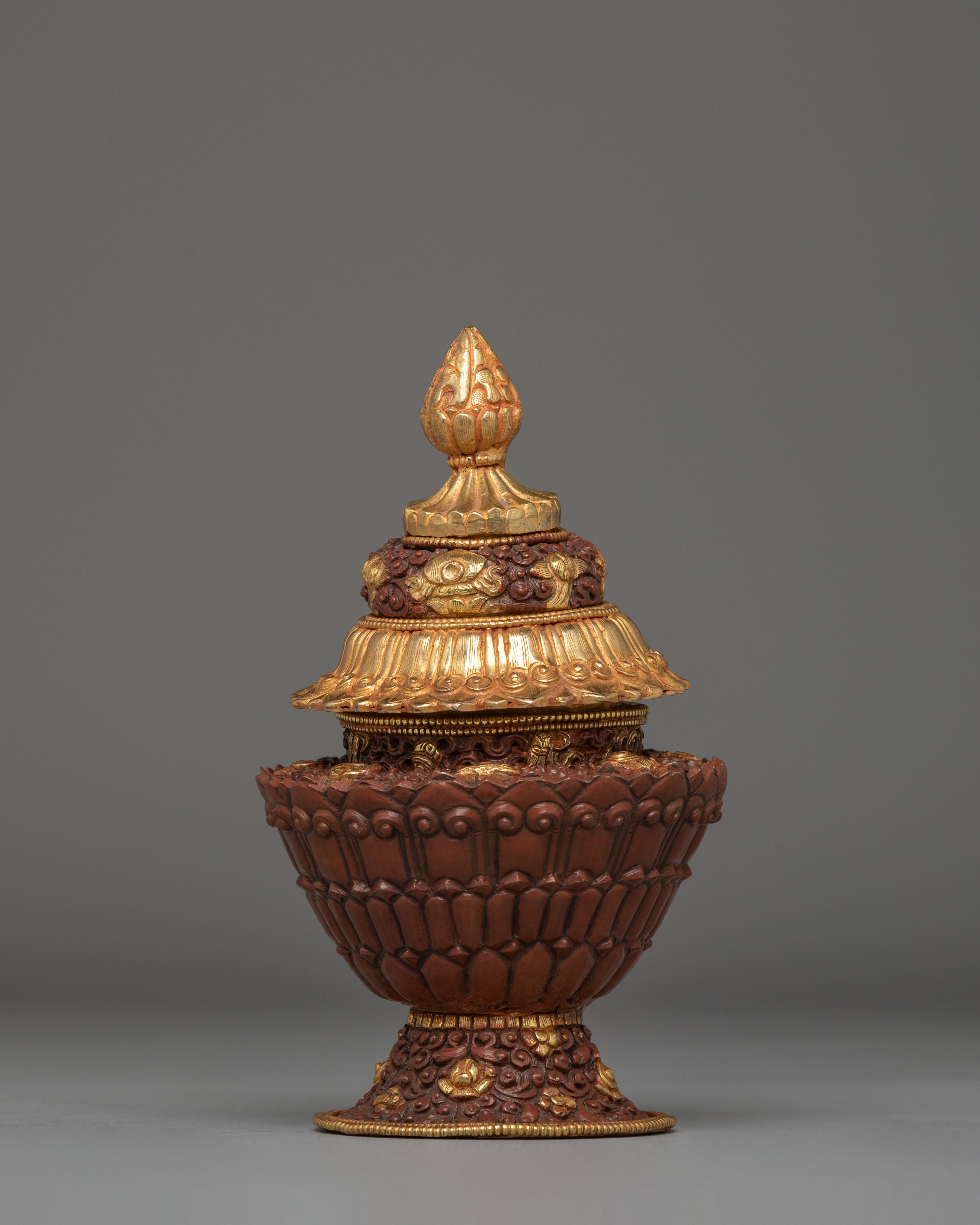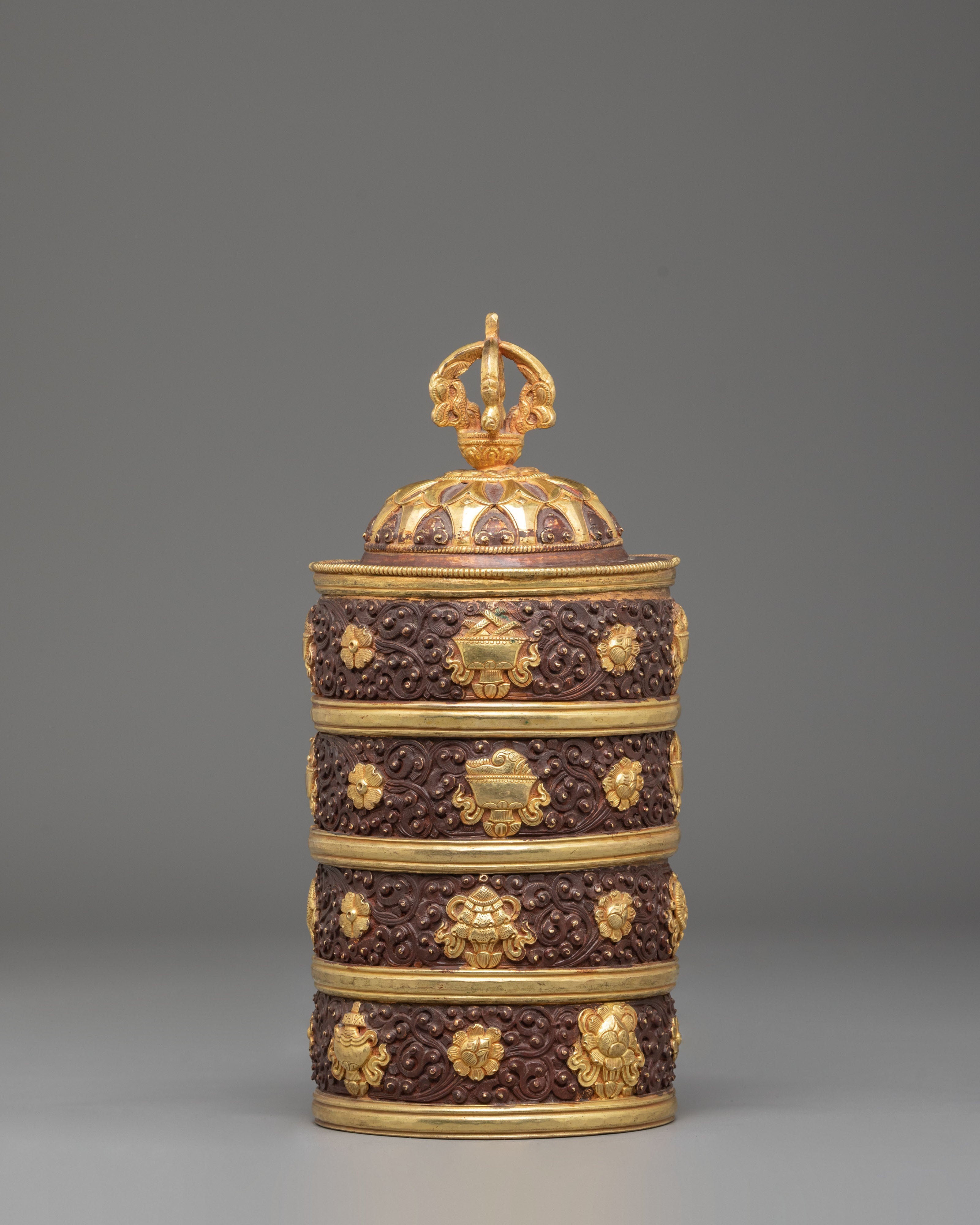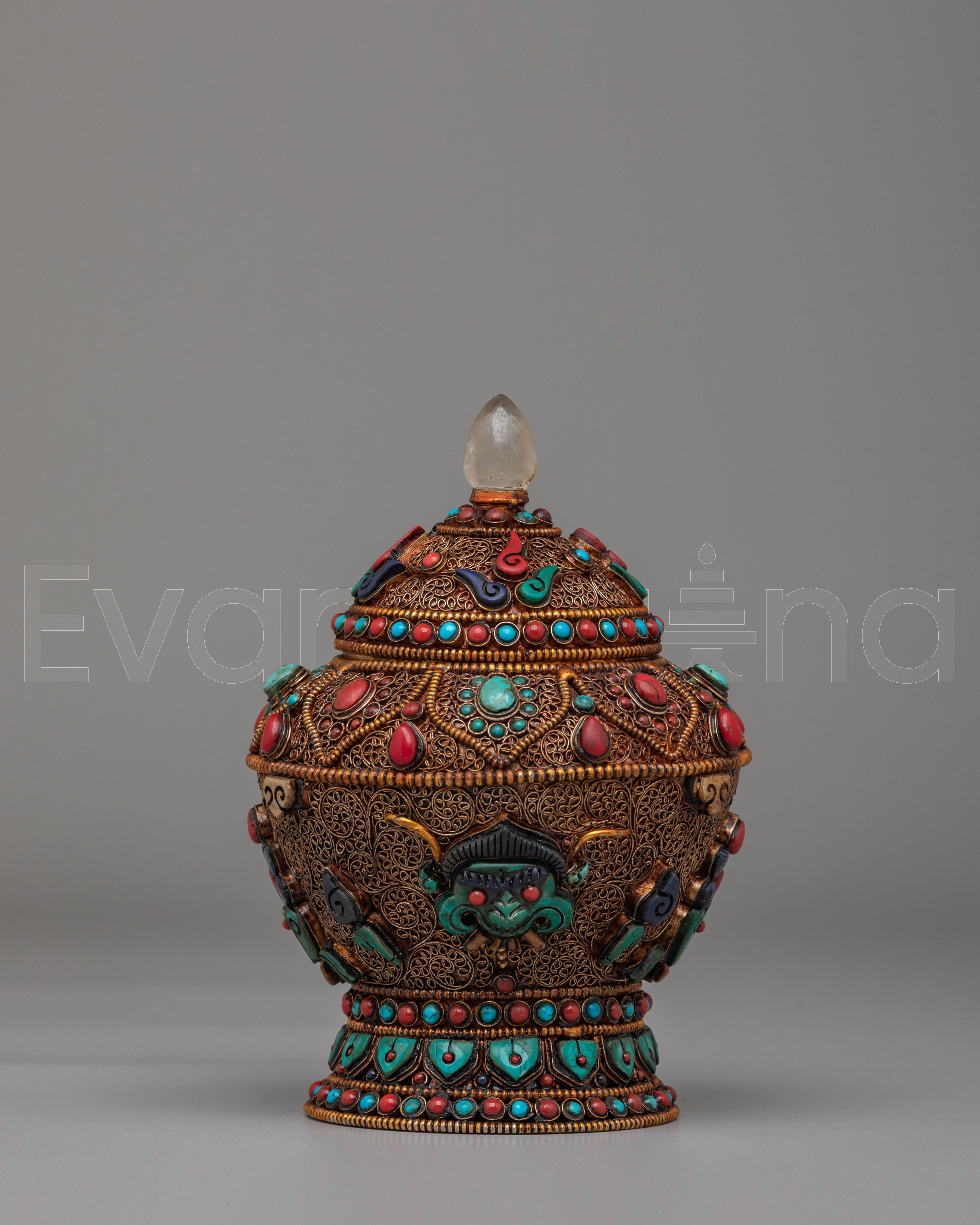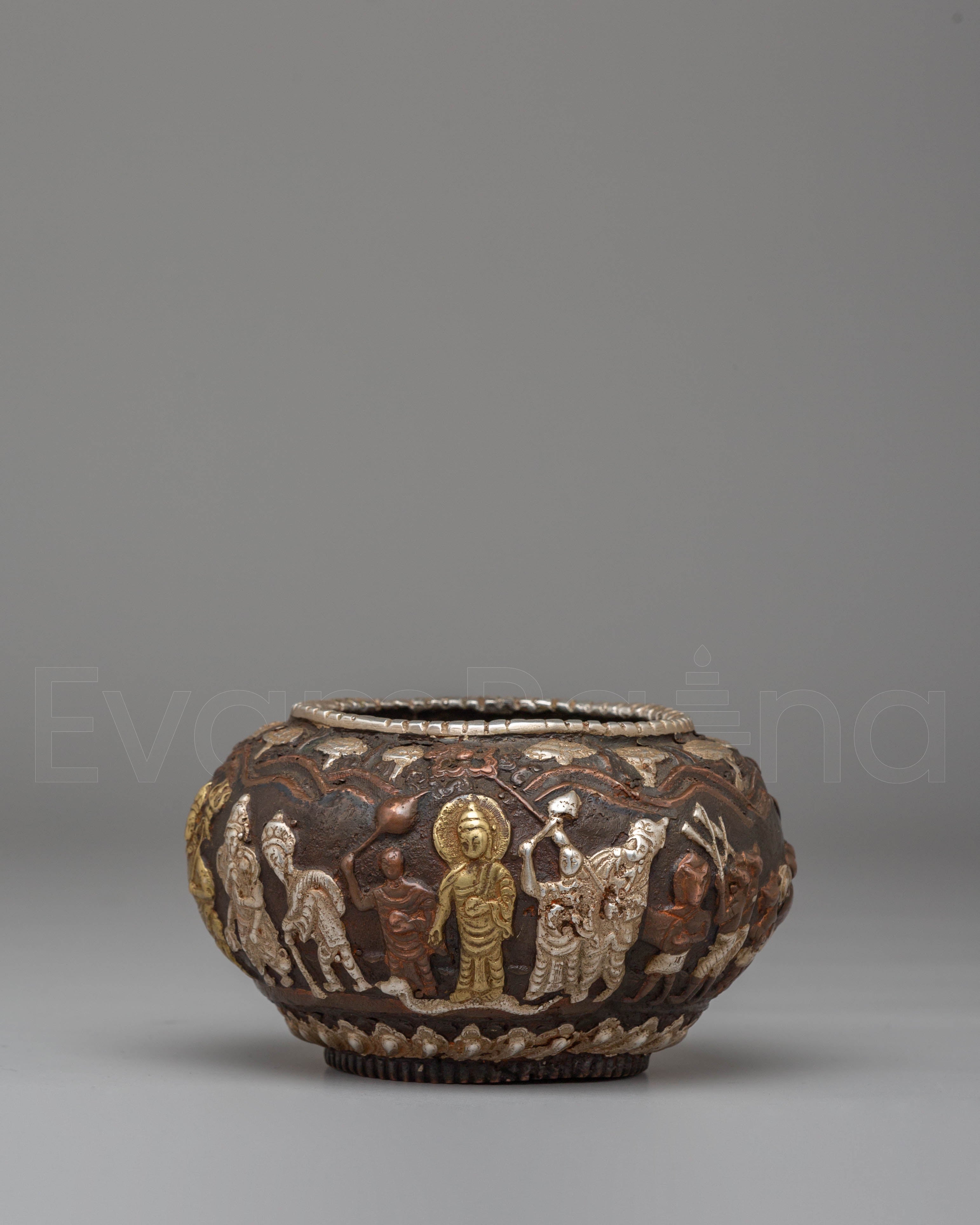Dhupur Rice Pot
169 products
Showing 1 - 24 of 169 products
Dhupur: Tibetan-Style Ritual Rice Pot in Buddhist Traditions
When performing Tibetan Buddhist rites and rituals, a "Dhupur" is a traditional rice pot made in the Tibetan style. These rice containers, which are frequently elaborately crafted and adorned, are essential both symbolically and practically in the context of Tibetan religious rituals. This is a synopsis of the "Dhupur":
Symbolism and Significance:
- Offering for Ritual: In Tibetan Buddhist ceremonies, rice offerings are held in the Dhupur and are symbolic. In addition to providing physical nourishment, rice symbolizes spiritual sustenance for gods and spirits.
- Purification: As part of the ceremony, rice in the Dhupur is frequently sanctified or consecrated. After that, the participants, offerings, and ritual area are all purified with this blessed rice. It is thought to drive out impediments and bad energy.
- Generosity: Giving rice during the Dhupur shows devotion and generosity. In Buddhism, generosity is regarded as a virtue, and presenting things to the Buddha is one way to gain merit.
- Dhupurs are usually adorned with elaborate patterns and motifs that reflect Tibetan art and culture. These patterns enhance the ritual's visual attractiveness and foster a revered ambiance.
- Usefulness: The Dhupur has a functional function and great symbolic significance. It facilitates the containment and presentation of offerings during rituals, which helps practitioners conduct ceremonies more successfully.
Rituals and Occasions:
Dhupurs are used in a variety of Tibetan Buddhist rituals and ceremonies, including:
- Offerings: During puja (prayer) ceremonies, Dhupurs offer rice offerings to gods, Buddhas, and spirits.
- Blessings: During purification rites and prayers, consecrated rice is frequently used.
- Monastic Ceremonies: Dhupurs are used in daily rituals and extraordinary ceremonies held by monasteries and monastic communities.
- Festivals: Dhupurs are frequently seen at Tibetan Buddhist festivals and cultural events, where they participate in collective devotion and carry offerings.
The Dhupur is an essential component of Tibetan Buddhist religious practice because of its dual purposes and spiritual meaning. It symbolizes the act of charity and dedication at the heart of Buddhist teachings, as well as the provision of food and spiritual sustenance.
